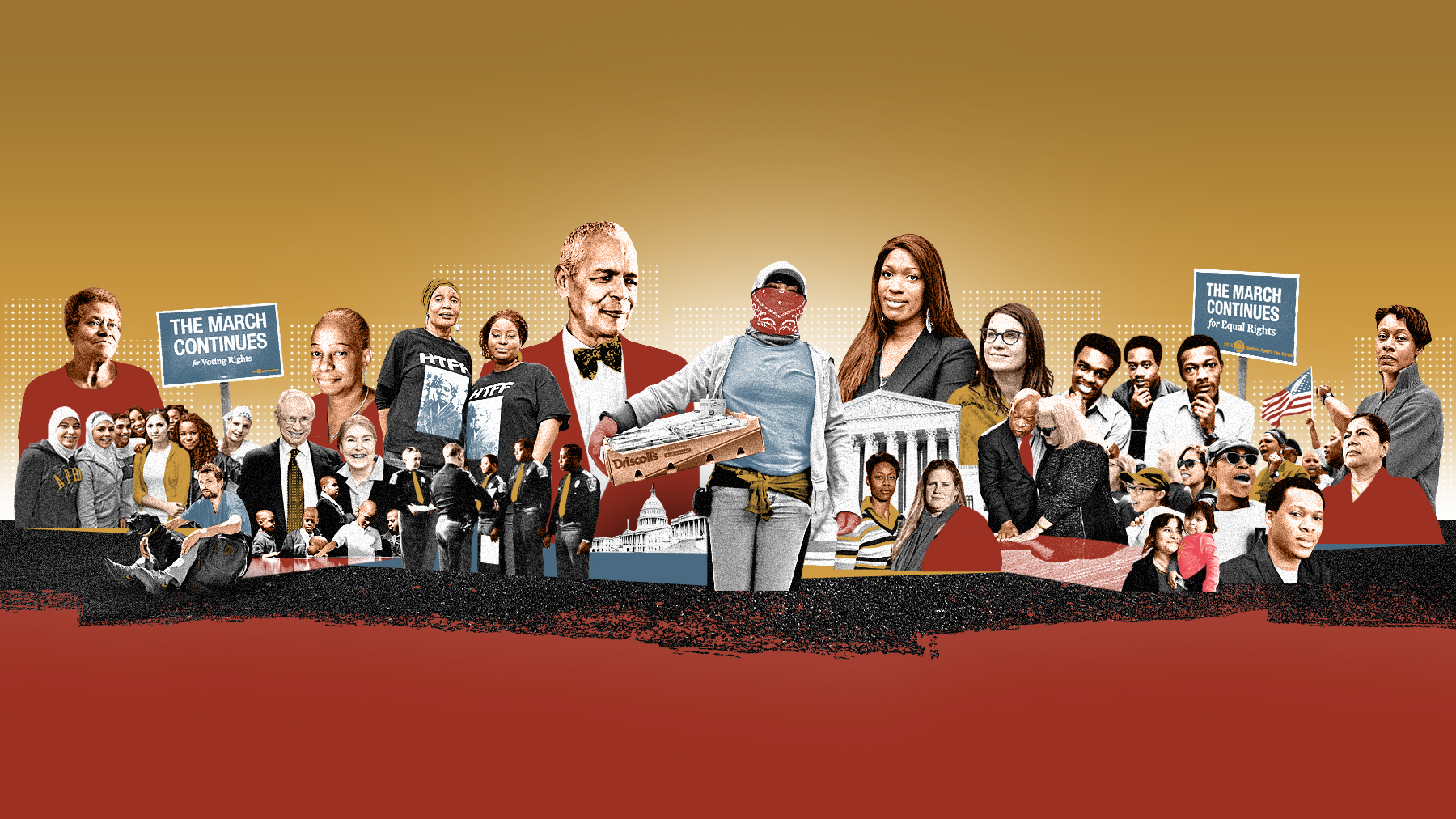The Southern Poverty Law Center this week celebrated 50 years of fighting for justice with a virtual, livestreamed event attended yesterday by supporters from across the country.
“The Southern Poverty Law Center has grown from a small law firm dedicated to protecting the achievements of the civil rights movement to a true catalyst for change and progress in the Deep South and across the country,” said Margaret Huang, SPLC president and CEO. “These great strides have been made possible by the work of our amazing staff and the support from hundreds of thousands of individuals across the country committed to change.”
The organization was founded in 1971 with the support and leadership of the late Julian Bond. At the time, the civil rights movement had brought new federal laws but little relief for many in the South. Over the ensuing decades, the SPLC delivered landmark court victories and blazed new paths, including:
- Forcing the integration of the Alabama state trooper force.
- Shattering barriers to equality for women.
- Shutting down some of the nation’s most violent white supremacist groups, including the United Klans of America, by winning multimillion-dollar jury verdicts on behalf of their victims.
- Tracking and exposing the activities of white supremacist and other hate groups by launching Klanwatch (now the Intelligence Project) amid a resurgence of the Klan after the civil rights movement.
- Creating Teaching Tolerance (now Learning for Justice) to produce anti-bias films, books, curricula and other resources for the classroom and distribute them, free of charge, to K-12 teachers across the country.
- Fighting for the rights of foreign guest workers and working to protect the rights of immigrants and their children to ensure they are treated with dignity and fairness.
The SPLC has worked to dismantle the vestiges of Jim Crow, reform juvenile justice practices and challenge continuing barriers to equality for children, the LGBTQ+ community and people with disabilities.
Today, the SPLC is under new leadership and is expanding its reach in the Deep South by strengthening partnerships with grassroots organizations and increasing its political and policy work across the South and in Washington, D.C.
“As we look forward to the next 50 years of this organization, we see a real opportunity to sharpen our impact and be more connected to the communities we serve – and who share our commitment to change and progress,” Huang said.
For example:
Ahead of the 2020 elections, the SPLC started its Vote Your Voice initiative – a program investing up to $30 million in organizations across the region working to conduct voter registration, education and mobilization activities among people of color over several election cycles. In 2021, the SPLC expanded Vote Your Voice to also support organizations’ voting rights and fair redistricting efforts. The initiative supports democratic participation by people of color in Alabama, Florida, Georgia, Louisiana and Mississippi – the region at the epicenter of the SPLC’s work. Last night, the SPLC announced it will invest a total of $100 million in the program through 2033.
- Last month, the organization also announced plans for building a greatly expanded, community-centric office complex in the metro Atlanta area. The organization’s vision is to use the new office building as a tool to spark investment and opportunities in an existing neighborhood and support the work of area community organizations and nonprofits.
- In addition to highlighting the SPLC’s history of fighting for racial justice, the virtual celebration outlined the organization’s future plans to work closer with community partners in four impact areas: dismantling white nationalism, eradicating poverty, protecting voting rights and advocating for the decarceration and decriminalization of Black and Brown people.
The event featured appearances from numerous guests and speakers including Montgomery, Alabama, Mayor Steven Reed; U.S. Reps. Bennie Thompson of Mississippi, Jerry Nadler and Grace Meng of New York, Jim Clyburn of South Carolina and Judy Chu of California; U.S. Sens. Raphael Warnock and Jon Ossoff of Georgia; voting rights activist Stacey Abrams; NAACP President and CEO Derrick Johnson; ACLU Executive Director Anthony Romero; and Fatima Goss Graves, president/CEO of the National Women’s Law Center.
Illustration by Ryan Olbrysh



